Candidate Directors for the 2021 Elections
Below you find a detailed description of each of the 13 candidates, in alphabetical order. You can find even more information about them on their personal websites. This year 5 new Directors for 2022-2024 will be elected.
Note: Much to the regret of the OCNS leadership, this year there are no female candidates. As an organization, however, we want to strongly re-assert our long standing commitment to gender equity and in particular the balanced and inclusive representation of women in leadership positions within our organization. This has been an important value of the CNS organization from its inception and we believe remains an absolute necessity in assuring the full and continued development of the field of computational neuroscience.
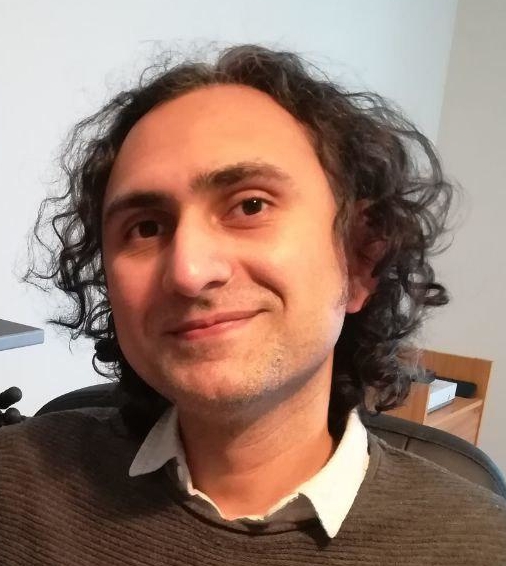 |
Tushar Chauhan
Postdoc MemberCentre De Recerca Matemàtica
Toulouse
France |
I am a Postdoctoral Researcher at the Centre de Recerca Matemàtica, Barcelona, Spain. My undergraduate training was as an electrical engineer (bachelor's) and a computer scientist (master's). I have a PhD in visual perception and postdoctoral experience in computational neuroscience. My areas of interest include colour vision, binocular vision, early sensory computation, and plasticity in the sensory cortices. I also work on normative theories of how natural statistics constrain the selectivity and architecture of the early visual cortex. Recently, I have also been working on the use of neuromorphics towards investigating biological problems in motion processing and binocular vision.
|
| |
Motivation:
My association with the OCNS started in August 2017 when I gave a talk on binocular rank-based STDP networks. I have since been involved primarily as a reviewer. I would be very happy to be part of the OCNS in a more organisational capacity. I do not have a lot of experience in organising conferences apart from student volunteering, and would like to learn this aspect of a research's skill-set.
OCNS and CNS participation:
# of CNS meetings attended: 1
Programme Committee/Local Organizing Committee member: No
OCNS member since: 2017
|
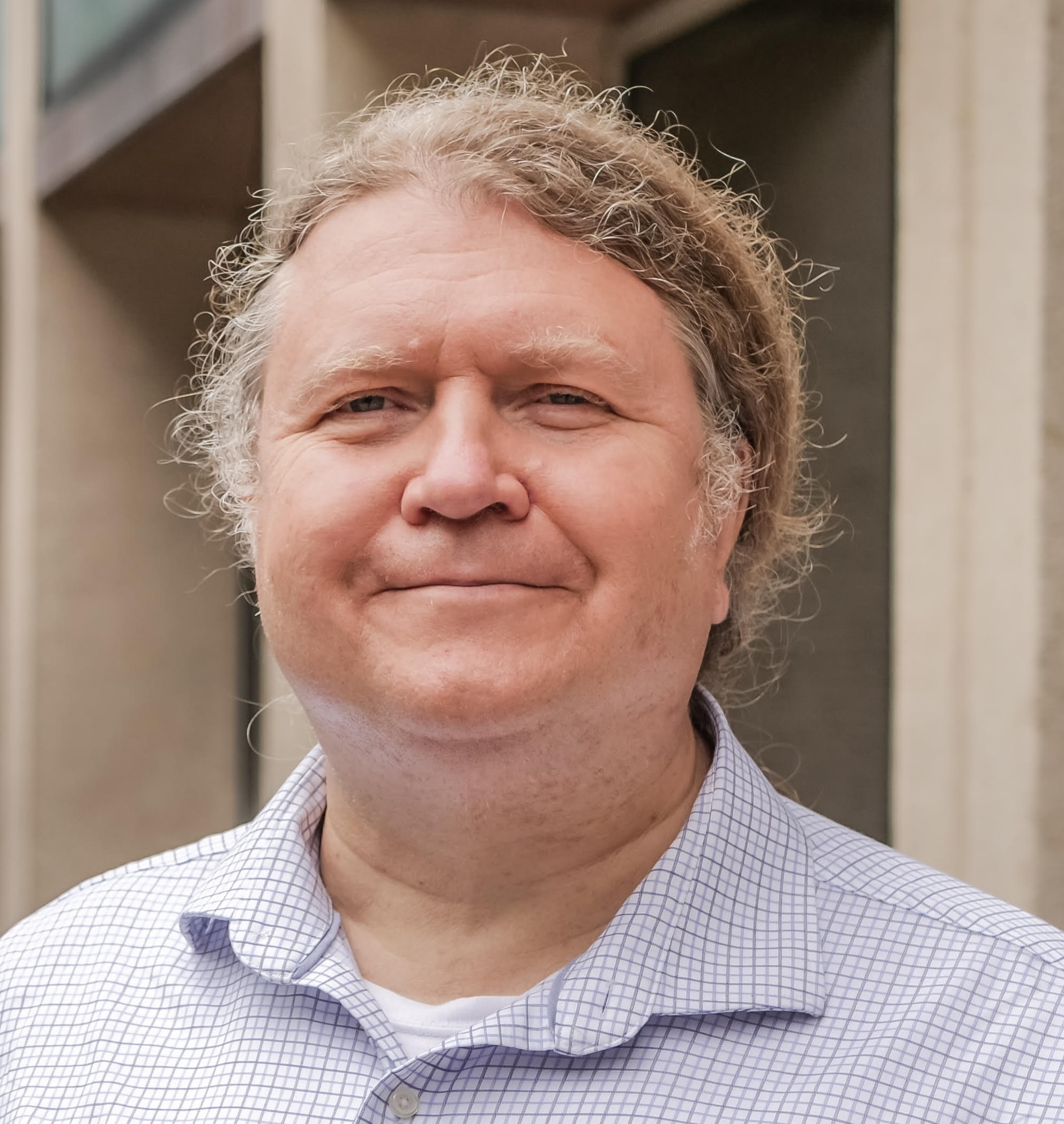 |
Gennady Cymbalyuk
Faculty MemberGeorgia State University
Atlanta
United States |
I am an associate professor of neuroscience and physics in the Neuroscience Institute and the Physics and Astronomy Department at the Georgia State University. My main goal is to understand how neuronal dynamics contribute to the control of animal behavior. I investigate mechanisms underlying generation of different patterns of activity such as silence, spiking, and bursting and the transitions between them to understand dynamics of sensory and motor circuits. I earned Ph.D. degree in physics and mathematics from Moscow State University and Institute of Mathematical Problems in Biology, Russian Academy of Science, Russia and received postdoctoral training in neuroscience at the Emory University.
|
| |
Motivation:
I highly value the mission of OCNS, enjoy spirit and charisma of the computational neuroscience annual meetings. I would be happy to serve on the OCNS board of directors to keep the meeting going.
OCNS and CNS participation:
# of CNS meetings attended: more than 5
Programme Committee/Local Organizing Committee member: Yes (past)
OCNS member since: 1998
Other information:
I was a local organizer of the Computational Neuroscience Meeting, Decatur/Atlanta 2012 together with Ronald Calabrese and Robert Butera. I served as a CNS publication chair and a member of the Board of Directors of the Organization for Computational Neuroscience in 2012 – 2015 and a member of the Program Committee of the Computational Neuroscience Meeting in 2009 -2015.
|
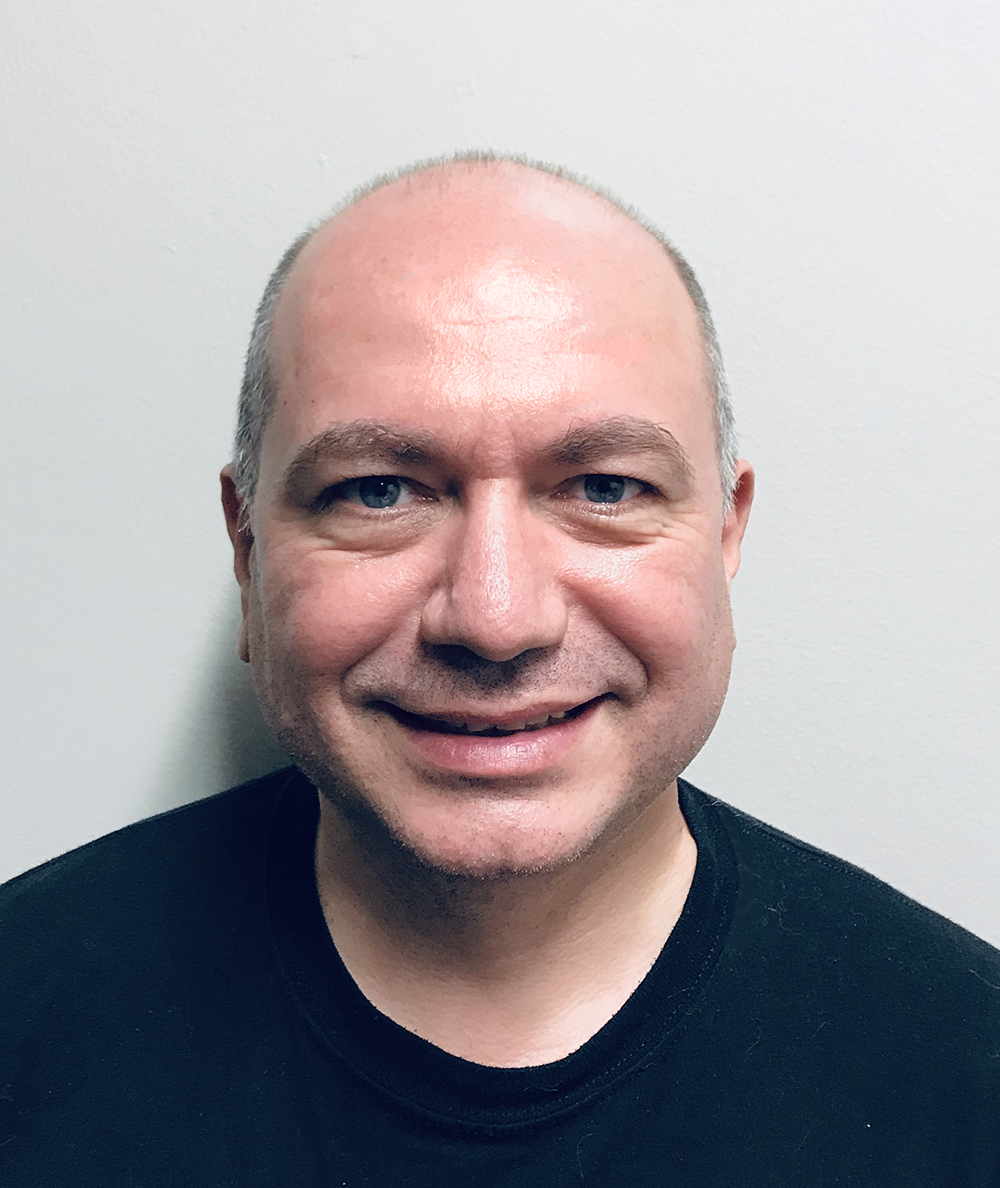 |
Yuri Dabaghian
Faculty MemberUniversity Of Texas Houston, Mcgovern Medical School
Houston
United States |
I started my scientific career as a theoretical physicist, as a student at Landau Institute for Theoretical Physics. At the time my studies focused on geometric and topological methods in field theory and Hamiltonian dynamics. In 2000, I completed my PhD in Quantum Chaos theory, and worked in this field for a few years. My main achievement during this period was the discovery of explicit formula for individual quantum eigenvalues for quantum-chaotic systems.In 2003, I switched to computational neuroscience, and began studying neurobiological principles of spatial cognition. I realized that this subject is getting ripe for establishing conceptual links between notions of "spatiality," as it is understood in neuroscience and the universe of "spatial" concepts from mathematics and theoretical physics. Over the last several years our group has been developing a topological framework for describing hippocampal cognitive map, and we are now expanding this approach to include contributions from other “space cells,” such as head direction cells, grid cells, parietal neurons, etc., which leads us into the geometric realm. Overall, my long-term goal is to advance our understanding of spatial cognition from a theatrical physics and mathematical perspective.
|
| |
Motivation:
I consider the conference organized by OCNS as a major event in the field of computational neuroscience, I I would like to contribute this event.
OCNS and CNS participation:
# of CNS meetings attended: 4-5
Programme Committee/Local Organizing Committee member: No
OCNS member since: 2007
|
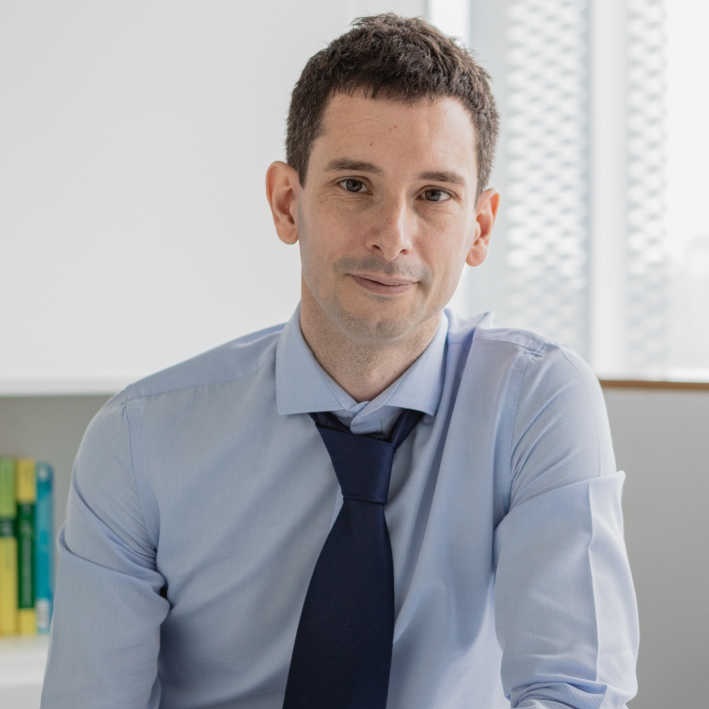 |
Maurizio De Pitta
Faculty Member/For-Profit EmployeeUniversity Health Network
Toronto
Canada |
I am the principal investigator of the Neuron-Glial Interactions Lab (NGILab) at the Krembil Research Institute and Assistant Professor at the Dept. of Physiology of the University of Toronto. My expertise is on neuron-glial interactions in the healthy and diseased brain. I use multi-disciplinary approaches at the crossroads of Physics, Computer Science, and Genomics, collaborating with biologists, engineers, and medical doctors, to harness the complexity of neuron-glial signaling, from the subcellular realm to Systems levels. I am a Principal Investigator of the H2020 ASTROTECH European Training Network and a member of the CliSyNe Network.
|
| |
Motivation:
I regard OCNS' merit as its central aim to engage multidisciplinary approaches and spur innovation in the CNS to promote long-term synergies in the community and beyond. I also see OCNS as a potential platform to train next-generation computational neuroscientists, leveraging its open-minded and supportive culture.
OCNS and CNS participation:
# of CNS meetings attended: more than 5
Programme Committee/Local Organizing Committee member: No
OCNS member since: 2013
Other information:
I serve as a reviewer on several CNS-related journals and Funding Agencies. I strongly advocate interdisciplinary research and enjoy how our brain’s inherent stochasticity reflects on our daily world. I like organizing occasions for scientific exchange (like two workshops at OCNS in the past) and haranguing about tantalizing neuron-glia interactions worldwide and locally.
|
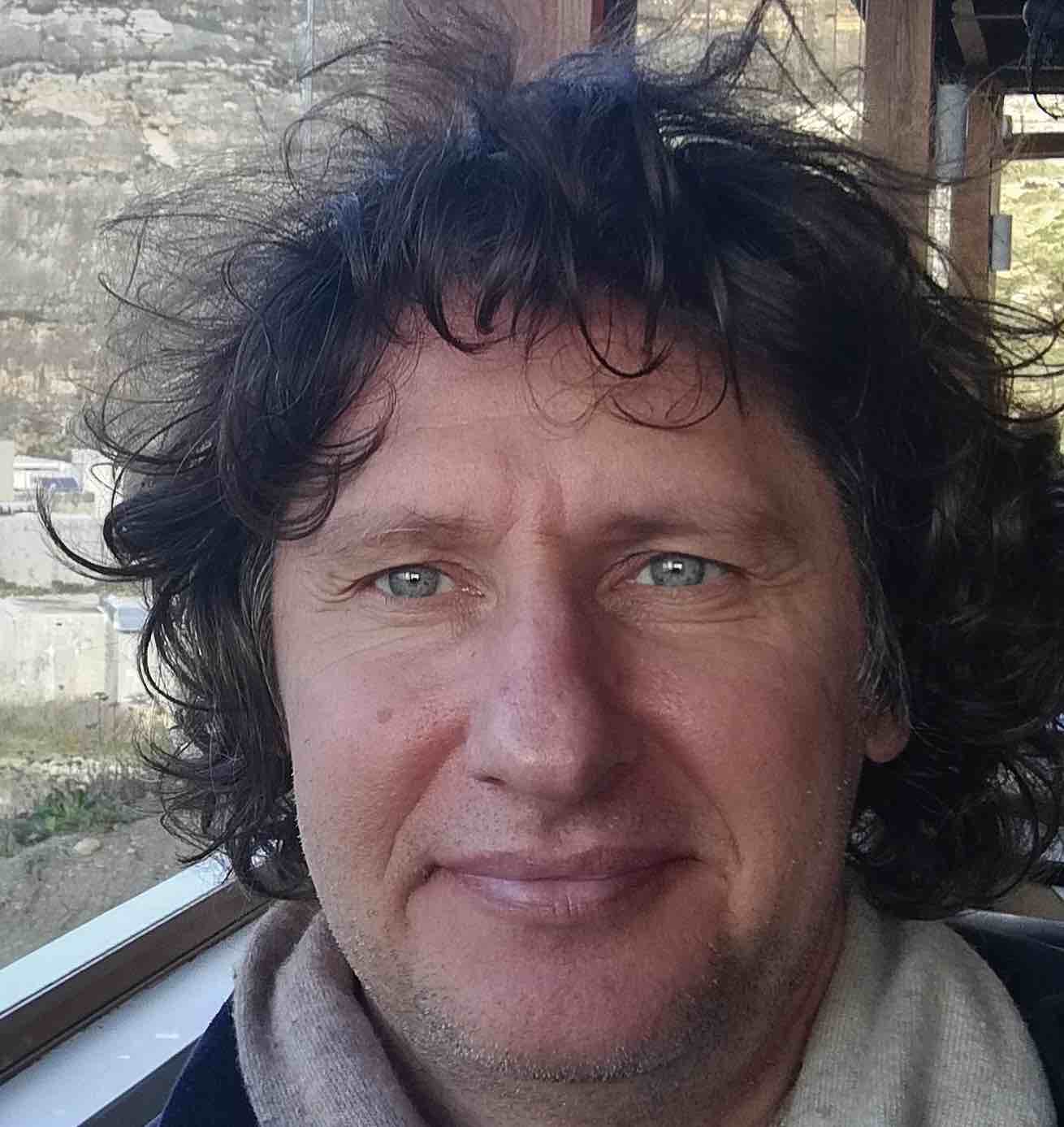 |
Max Garagnani
Faculty Member/For-Profit EmployeeGoldsmiths, University Of London
London
United Kingdom |
I hold a PhD in Artificial Intelligence (Durham, 1999) and a PhD in Computational Cognitive Neuroscience (Cambridge, 2009). I am a Senior Lecturer in Computer Science at Goldsmiths, University of London and also hold a Visiting Researcher position at the Freie Universität Berlin (Germany).My research focuses on the implementation of biologically realistic, deep, spiking neural-network models closely mimicking structure, connectivity, and physiology of the human cortex. I apply these models to simulate and explain the brain mechanisms underlying the natural emergence of cognitive function starting from a randomly connected, uniform neural substrate, and only by means biologically realistic learning mechanisms.While my research has been focussing mainly on language, the neural architecture I have developed has been used successfully to explain also automatic change detection and attention processes, spontaneous decisions to act (or "free will"), the emergence of memory circuits, and the recruitment of the visual cortex in blind individuals.
|
| |
Motivation:
Over the years, I have had the opportunity to attend several OCNS meetings and presented my work there; I found these events extremely interesting and very well organised. I believe the Organisation for Computational Neurosciences is playing a vital role in the dissemination of results and the advancement of knowledge in this discipline; I would like to be part of this, and support the organisation's growth and prosperity.
OCNS and CNS participation:
# of CNS meetings attended: 2-3
Programme Committee/Local Organizing Committee member: No
OCNS member since: 2021
Other information:
I am Review Editor for Frontiers in Computational Neuroscience (2020-present) and Frontiers in Psychology (Cognition section).I am member of the Experimental Psychology Society (membership no. 0002272336) and Associate Fellow of the UK Higher Education Academy.
|
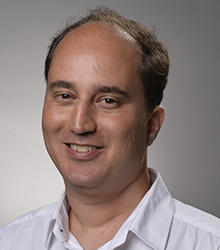 |
Cengiz Gunay
Admin||Community Managers||Content Managers||Postdoc Member/Non-Profit EmployeeGeorgia Gwinnett College
Lawrenceville
United States |
Dr. Cengiz Gunay had a bachelor's degree in electronics and telecommunications from Turkey. His doctoral degree in the U.S. was in computer science, specializing in artificial intelligence and neural networks, in particular, timing of spiking neural networks in object detection tasks. His postdoctoral research in computational neuroscience was with Dieter Jaeger, Astrid Prinz, and Ronald Calabrese on constructing models of single cells or small neuronal networks using the Hodgkin-Huxley formalism and on creating large-scale databases of these neuronal models. He is currently an Associate Professor of Information Technology at Georgia Gwinnett College, where he teaches software engineering and data science courses and continues his research on modeling fruitfly motor neurons.
|
| |
Motivation:
I have been presenting at the CNS meetings since 2004 and also organized tutorials and workshops - most recently on bringing methods from the data science field. I volunteered as the CNS webmaster in 2021 for a successful online conference. I would like to work on increasing accessibility of the meeting and leverage more interactive technologies to improve attendance and engagement.
OCNS and CNS participation:
# of CNS meetings attended: more than 5
Programme Committee/Local Organizing Committee member: No
OCNS member since: 2004
Other information:
I maintain open source projects, such as the PANDORA Matlab toolbox, parameter search simulation tools, and many simulation-related small programs. I have made minor contributions to GENESIS and NEURON simulators. I am a member of the scientific advisory team of the NeuroML group. I have published many online tutorials. I am also a co-creator of a public resource called Analysim.
|
 |
Damon Lamb
Faculty Member/For-Profit Employee
Gainesville
United States |
I am a dyed-in-the-wool computational neuroscientist with degrees in mathematics, computer engineering and computer science before earning my PhD in neuroscience under the mentorship of Ronald Calabrese and my committee (Astrid Prinz, Rob Butera, and Dieter Jaeger). Under their guidance, I developed populations of multi-compartment biophysical models of well-constrained neuronal networks, identifying interesting relationships between ion channels, synapses, and neuron/network activity. I am now an Assistant Professor of Psychiatry at the University of Florida and the Director of Biomedical Informatics and Health Research Scientist at the Malcom Randall VAMC, where my work focuses on multi-modal neuroimaging, biophysical modeling, and nerve stimulation in both humans and animals.
|
| |
Motivation:
I believe some of the most interesting work in neuroscience is driven or enabled by computational methods and approaches. With the growth in computing as a tool pushing forward scientific discovery, there is a substantial need for well-trained computational neuroscientists, especially to develop and execute complex team science projects. I look forward to contributing to the community.
OCNS and CNS participation:
# of CNS meetings attended: 2-3
Programme Committee/Local Organizing Committee member: No
OCNS member since: 2012
Other information:
My first contributions to the Organization for Computational Neurosciences were helping organize and run the 2012 meeting in Atlanta/Decatur, Georgia, including brewing the beer for the poster sessions. I have offered/been signed up to review submissions for many past CNS meetings, but have not been assigned any to review.Locally, I serve on the Research Computing Advisory Committee and make extensive use of our cluster computer, one of the most computationally powerful yet energy efficient in the world, hipergator.
|
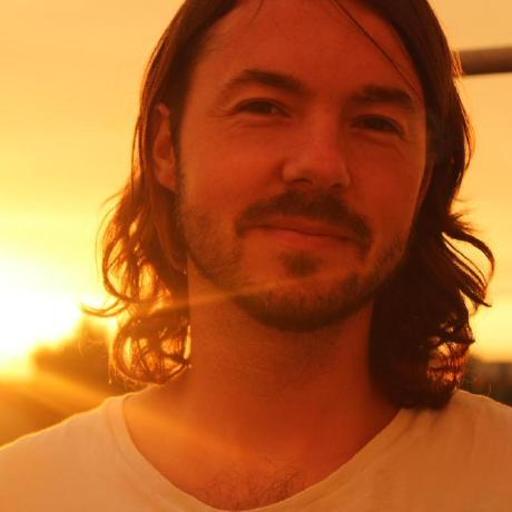 |
Christoph Metzner
Postdoc MemberTechnische Universität Berlin
Berlin
Germany |
I am currently a postdoc at the Neural Information Processing Group led by Prof. Obermayer at the TU Berlin, and at the Clinical Psychology and Translational Neuroscience group led by Prof. Uhlhaas at Charité. Before that I was a postdoc in the Biocomputation Group led by Prof. Steuber at the University of Hertfordshire and got my PhD at the University of Lübeck. My research aims to use computational models at multiple scales (from single cells to whole brains) to understand sensory processing and cognitive functions and to uncover biological mechanisms underlying psychiatric disorders, such as schizophrenia, in order to identify novel, more effective treatments. I am also very interested in open and reproducible research and a member and reviewer of the ReScience initiative.
|
| |
Motivation:
For me the CNS meeting has always been the perfect mixture of amazing science and a great open and welcoming community. I profited a lot from attending CNS and would now like to give something back as a director. I would especially like to focus on making the conference/whole organization even more inclusive and accessible to underprivileged groups (e.g. hybrid meetings, low/waivable fees,...).
OCNS and CNS participation:
# of CNS meetings attended: more than 5
Programme Committee/Local Organizing Committee member: Yes (past)
OCNS member since: 2010
|
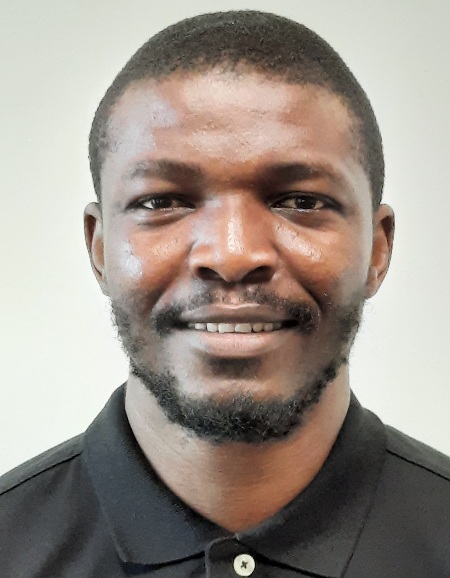 |
Akinyemi Omoniyi
|
I am a Faculty member and Ph.D. student of Human Anatomy (subfield Neuroscience) at Ahmadu Bello University Zaria, Nigeria. I obtained my B. Tech. and M.Sc. in Anatomy at the Ladoke Akintola University of Technology, Ogbomoso and Ahmadu Bello University, Zaria respectively. I am a co-founder of the BIOAFRI group, a not-for-profit organization aimed at organizing computational biology workshops in Nigeria. My research interest is in Neuroscience and Computational Biology, and I have publications in peer-reviewed local and international Journals. I have also presented in both national and international conferences and exposed to both wet and dry laboratory skills. I have five years of progressive experience in Bioinformatics. I possess a certain creative flair in computational biology tools for drug discovery, reverse vaccinology, and genome analysis. I am also skilled in immunohistochemistry, stereology, bright field, and electron microscopy.Currently, as a guest researcher at Core center for Molecular Morphology, Section for Stereology and Microscopy, Department of Clinical Medicine, Aarhus University, Aarhus, Denmark, I am analyzing diabetic and normal mice subjected to neuropathic surgery and Botulinum neurotoxin.
|
| |
Motivation:
Skills in computation neuroscience is a skill that I have always wanted to have. I have registered for the computational neuroscience course on the Coursera platform, I have also reached out to the International Neuroinformatics Coordinating Facility (INCF) and attended the 2020 Neuromatch Academy (NMA) to learn about computational neuroscience and acquire the skills that can be useful in a limited-resource setting like in Nigeria specifically. Africa neuroscientists are less represented in computational neuroscience not because we are not interested but lack of awareness of such potential and lack of mentors. I wish to be part of the OCNS board (workshop/tutorial assistant) to complement my learning and also build leadership skills. This will avail me the opportunity to build a professional network and motivate other young neuroscientists in Nigeria interested in computational neuroscience.
OCNS and CNS participation:
# of CNS meetings attended: 0
Programme Committee/Local Organizing Committee member: No
OCNS member since: 2019
|
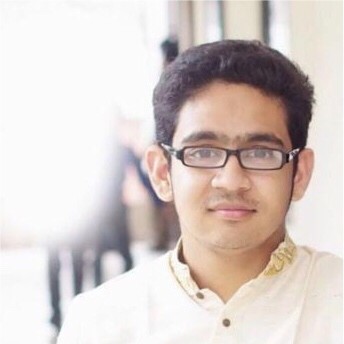 |
Minhajur Rahman
Student MemberUniversity Of Prince Edward Island
Charlottetown
Canada |
Minhajur Rahman is a 4th year Computer Science Student at the School of Mathematical and Computational Sciences, University of Prince Edward Island, Canada. His academic supervisor is Dr. Yingwei Wang, with whom he has been working for the last two years. He currently works as a Research Assistant and Software Developer in the UPEI Health Center Research Clinic under Dr. William Montelpare. His interests include Machine Learning, Health Informatics, IoT and Cloud Computing.
|
| |
Motivation:
I joined OCNS because I’m interested in Computational Neuroscience, specifically Neural Data Analysis & parallels with Artificial Neural Networks. I’ve assisted with research in Cloud Computing & recently Health Informatics, which sparked my interest in neurologic deficits, differences & disorders such as Alzheimer's, ADHD & Dyslexia. I would love to be more involved, to continue my exploration.
OCNS and CNS participation:
# of CNS meetings attended: 2-3
Programme Committee/Local Organizing Committee member: Yes (present)
OCNS member since: 2020
|
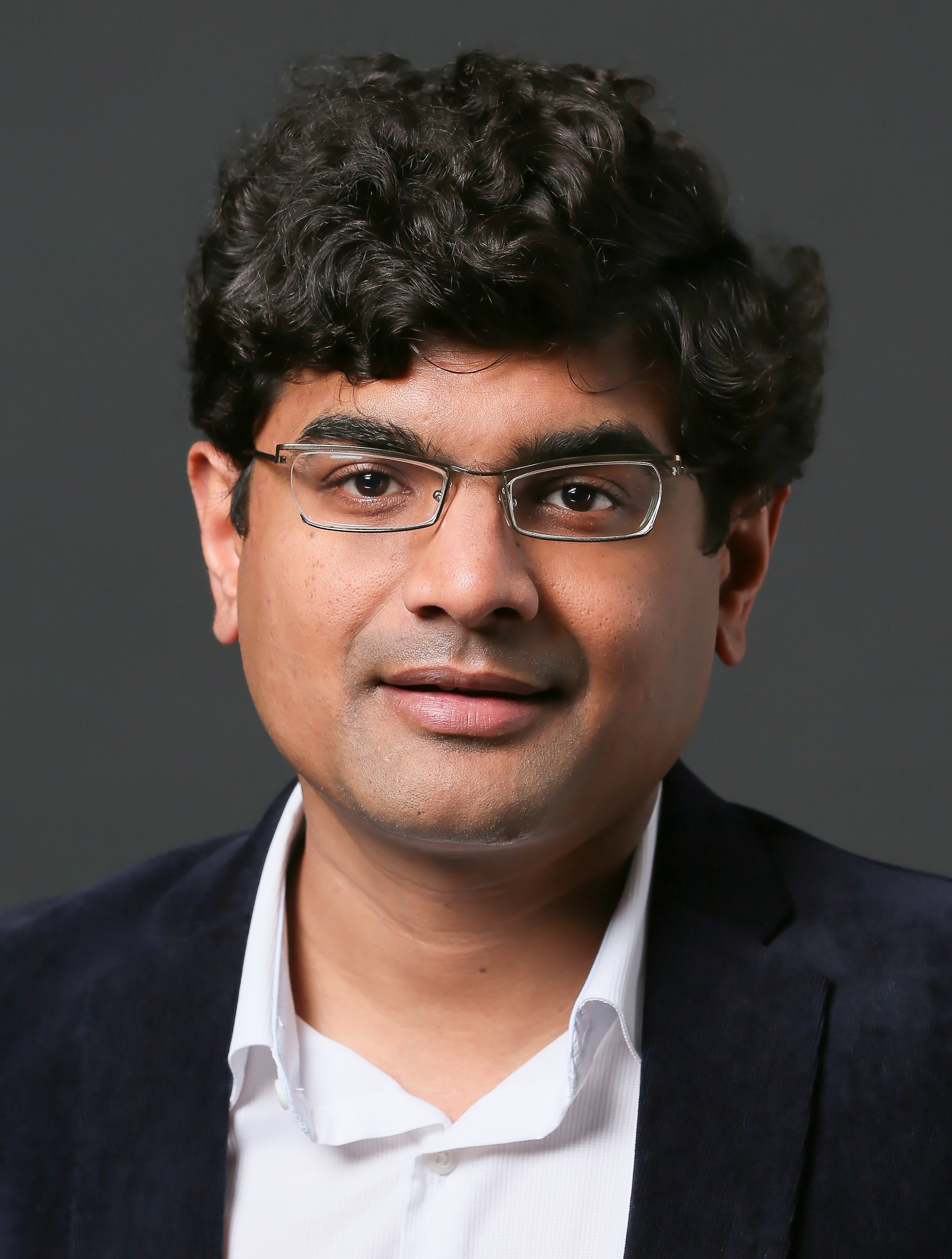 |
Srikanth Ramaswamy
Faculty MemberEcole Polytechnique Federale De Lausanne
Lausanne
Switzerland |
My academic background is multi-disciplinary, encompassing computational neuroscience and cellular neurophysiology. As a PhD student and research scientist at EPFL, I was central to developing an algorithmic approach to reconstruct a digital model of rodent neocortical microcircuitry, which leverages sparse biological data to sparse to build dense tissue-level models of neocortex and predict the emergence of network states. I have just established my research group as a tenure-track Assistant Professor at Newcastle University. My group is pioneering a novel mixed method approach at the interface of experiments and computational modelling to implement biological organizing principles in “neuromodulation-aware” deep networks and predict how the neocortex learns and represents information.
|
| |
Motivation:
I have been part of OCNS since 2006 and would like to give back to the community. Becoming a director will allow me to offer my wide-ranging experience in organizing outreach, conferences, mentorship and efforts to champion diversity and inclusion of minority scientists. I will build on these strengths to communicate the state of knowledge in computational neuroscience to diverse audiences.
OCNS and CNS participation:
# of CNS meetings attended: more than 5
Programme Committee/Local Organizing Committee member: No
OCNS member since: 2006
Other information:
I have been actively involved in teaching and mentoring students at the IBRO-Simons CNS School in South Africa and the Neuromatch Academy. More recently, I have championed diversity and inclusion as part of the ALBA network by initiating a unique podcast series (https://bit.ly/3mLo6jK) to enable underrepresented neuroscientists to share their personal journeys in breaking the glass ceiling.
|
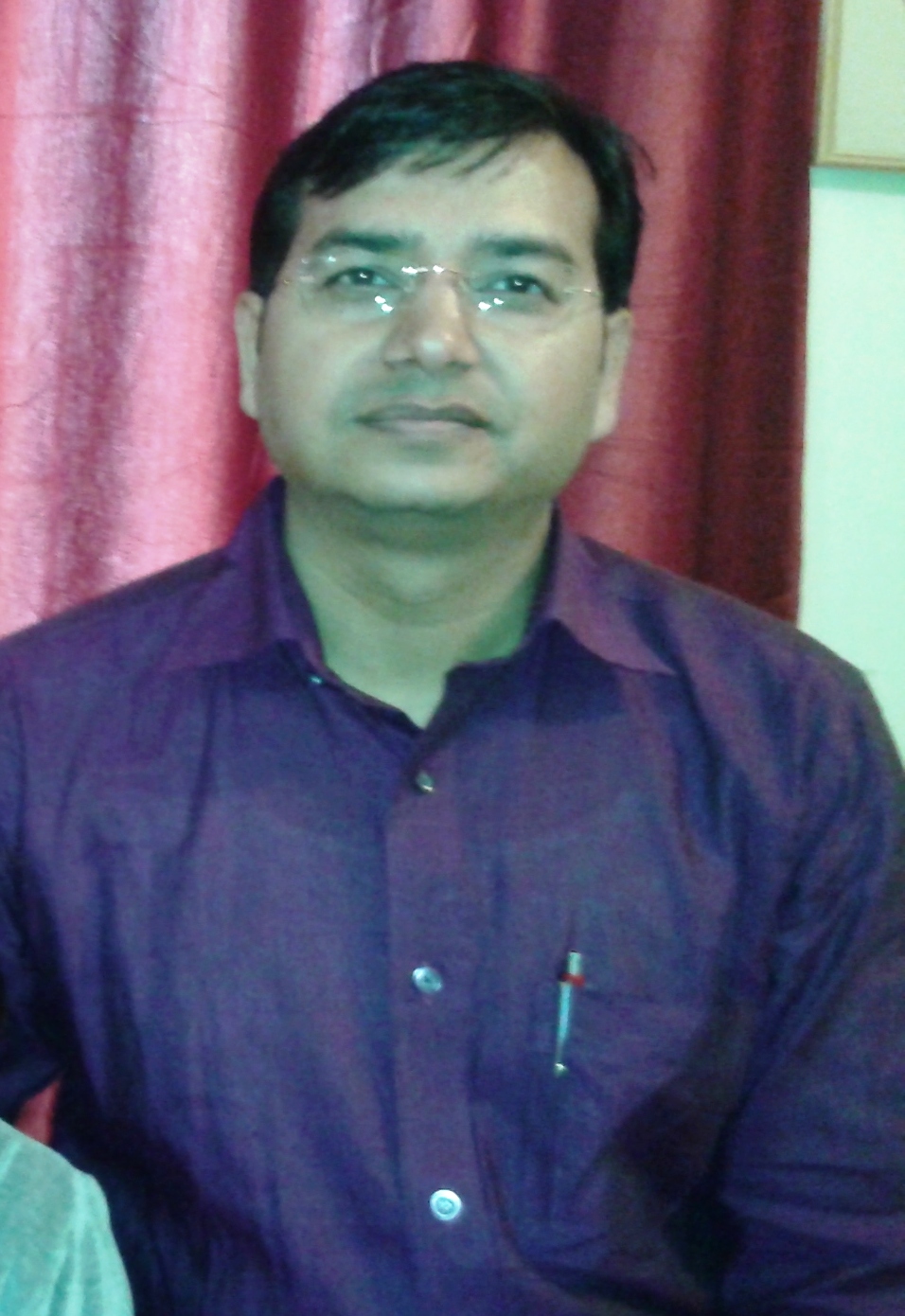 |
Tiratha Singh
Faculty MemberJaypee University Of Information Technology (Juit)
Shimla
India |
I did PhD in Bioinformatics from MANIT, Bhopal followed by post doctoral fellowship from Tel-Aviv University, Israel. I am working as an Associate Professor at JUIT, Solan, India. I am working on various aspects of Genomics, and Proteomics towards their involvement in various human disease. I am also interested and working on the annotation of complex Biological Networks through Computational Systems Biology approach. I am specifically working on DNA repair mechanisms and their role in malignancies. I am also exploring Alzheimer's Disease (AD) through myriad of computational approaches. 6 PhDs awarded under my guidance and 2 more are pursuing. I had received funding from various government agencies which includes DST, DBT and ICMR. More about me is available at: http://www.bioinfoindia.org/raj and http://bit.ly/tiratharaj
|
| |
Motivation:
I am working in the area of Computational Neuroscience since last more than 10 years. We are working on Alzheimer's disease and applying myriad of computational techniques to solve its mystery. We completed two research projects in the same domain and 4 PhDs awarded under my guidance on neurological data analysis. More than 10 BTech, MTech and MSc projects were also guided by me in the same domain. My lab had published more than 30 research articles and 5 book chapters in the same domain. Having an extensive experience in this domain and have my education and training in Bioinformatics/Computational biology I feel that I present my candidature for the same.
OCNS and CNS participation:
# of CNS meetings attended: 0
Programme Committee/Local Organizing Committee member: No
OCNS member since: 2020
|
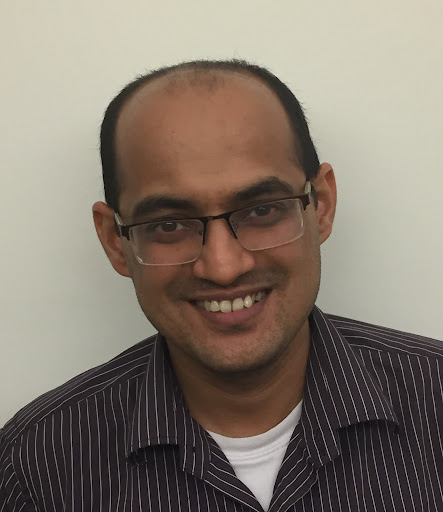 |
Pawan Thapaliya
Student MemberUniversity Of South Florida
Tampa
United States |
My expertise is in computational Biophysics. I worked as a Teaching and Research Assistant at the University of Texas Rio Grande Valley for 3 years. I earned my Master's degree in 2019. During my stay at UTRGV, I did research on single molecules. We designed a model to stretch the short DNA oligomers by applying an external force. Analyzed the result using the metropolis hasting algorithm. Currently, I am working as a graduate Ph.D. student at the University of South Florida. We are mainly working on modeling ion concentration dynamics and neurovascular coupling during a seizure and spreading depolarization. We use Fortran, python, and Matlab as computational tools to generate the data and analyze the results.
|
| |
Motivation:
I had served as a conference assistant this summer. I fully enjoyed the role given to me. I had independently run o quiz session during the conference. This motivates me that I am capable of accepting any new post available for me.
OCNS and CNS participation:
# of CNS meetings attended: 1
Programme Committee/Local Organizing Committee member: No
OCNS member since: 2021
|
|













